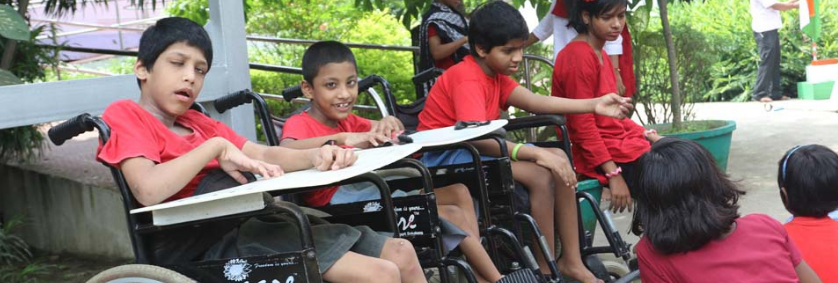Our Blog

16Apr 2021
Non-Governmental Sectors Have A Greater Role Towards Children With Disabilities
The NGO sectors in India are bestowed with the responsibility towards ensuring education for children with disabilities. The District Primary Education Program has been incorporated into the Sarva Siksha Abhiyan and focuses on children with disabilities, which the NGO executives have to follow while operating. The Sarva Siksha Abhiyan has listed eight major areas of intervention to receive a lot of priority for inclusive education –
- Surveys to identify the Children with special needs.
- Assessment of the children with special needs
- Setting up a network with the NGOs as well as the Government schemes
- Ensuring access is barrier-free
- Providing training to teachers on inclusive education
- Appointing the resourceful teachers
- Curricula adaptation, appropriate Teaching Learning Materials, and textbooks.
The listed priorities focus on the accessibility issues, and the very last three priorities are associated with the processes based on the classroom, which in its very essence is much vital to determine the educational experience quality.
All these priorities are given varying degrees of emphasis at the time of planning when the NGO executives have to evaluate these initiatives worth and success rates.
The chief player as identified in the Sarva Siksha Abhiyan plans to fulfill the Inclusive Education's visions is the NGO sectors. The NGOs are playing a central role in the upliftment of children with disabilities in India, and thus developing the educational provisions for them.
Despite their involvement being historically revered, like bringing up the concerns of the marginalized children with disabilities into the spotlight, the NGOs are continuing to leave significant impacts on the present practices.
The District Primary Education Program and the Integrated Education for Disabled Children have clearly outlined how essential it is to involve the NGOs in varied activities revolving around community mobilization, detecting earlier, and service delivery. This particular focus has been well maintained by the NGOs under the instructions of Sarva Siksha Abhiyan. Here the members allow convergence with the NGOs for the framework for Inclusive Education.
As suggested by data, the involved NGOs in Inclusive Education as under Sarva Siksha Abhiyan did increase a lot to 796 as in 2007-2008. The NGOs have been identified as the chief players in areas like
Providing steady aids along with appliances to the children with special needs
Inclusive management planning and management
Support with necessary resources.
The NGOs are indeed the sole players in providing special education by means of grants-in-aid they receive from the Ministry of Social Justice and Empowerment, and their involvement is highly sought after to change the role of the special education centers in India with considerable efforts as well as to meet the mainstream goals. The Sarva Siksha Abhiyan has outlined three principle ways to facilitate the developments –
- Development of special schools as being the resource centers
- Better and more connections between the special and mainstream schools
- A lot of overlap between training the teachers to teach the special and general students.
A child might suffer from disabilities and could be labeled as a child having special needs. But it does not mean they will be deprived of education. So, the NGOs in India have taken up the responsibility to analyze their needs, and cater to their education needs. As stated under Sarva Siksha Abhiyan, children with disabilities must be taught to read and learn at the special Institutions for them, so they can go ahead with education and excelling in life.
SHARE THIS
0 Comment(s)
Leave a Comment
Latest Articles
-
How Do NGOs For the Physically Disabled Support Th......
07th Jun, 2024 -
How NGOs Help Elevate The Condition Of PWDs?
18th Mar, 2024 -
The Role Of Community-Based Rehabilitation Program......
08th Mar, 2024 -
How NGOs For Disabilities In India Champions For I......
16th Feb, 2024 -
The Role Of NGOs In Development Of Children With D......
05th Feb, 2024






